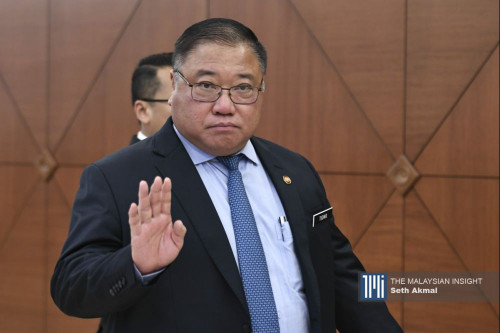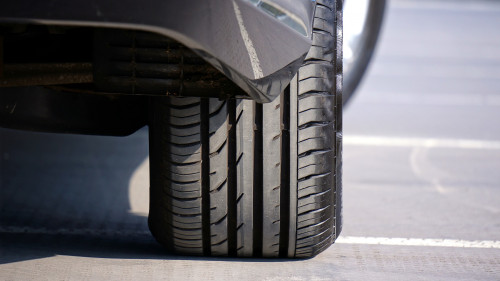GEORGE TOWN – The goods and services tax (GST) is vital to help the country reset its economy following the global economic complications and fallout of Covid-19.
However, veteran economist Tan Sri Kamal Salih warned that the government cannot afford to have the tax’s rebates process be as lengthy and complicated as it was before.
In an interview with The Vibes, he said that the rebate system, especially for the corporate sector, was cumbersome with some companies complaining that they only received their due amounts after months and even years.
"The backlog for rebates is where the Royal Customs and Excise Department struggled,” said Kamal, who founded the Malaysian Institute of Economic Research (MIER) and served as a policymaker in previous federal administrations.
“I think there needs to be a specific entity formed to oversee the GST. It is a form of a trust fund where the amount collected is then channelled back towards helping the people.
“It is not a fund for the government to splurge on items other than those for the people, and must not be tainted with any element of corruption attached to its process,” he cautioned.
The surplus from the GST must be spent on aiding the median income groups such as the M40 and B40, who are struggling in the wake of the global hyperinflation and the inability of the government to rein in the rise in living costs, he added.
Kamal was the founding executive director of MIER from 1986 to 1994. He served as its chairman from 2019 to 2021.
As a policy adviser, Kamal was a member of the prime minister’s economic panel from 1981 to 1986 and the Malaysian Business Council from 1991 to 1996. He served as an economic adviser on the National Implementation Task Force under then-prime minister Tun Abdullah Ahmad Badawi from 2006 to 2008.
Kamal estimated that when the GST was operating in the country, some RM90 billion was earned and deposited into its coffers. This was meant to be rechannelled in terms of cross-subsidies for the needy and in rebates for businesses who had paid in excess.
He stressed that if the GST was to be reintroduced, the Finance Ministry needs to be more transparent over the trust it holds over the sums collected and the rebate process must be better than last time.
“It must be set up with its own accounting system and not lumped together in a government consolidated fund. It needs to be transparent and compelling enough.”
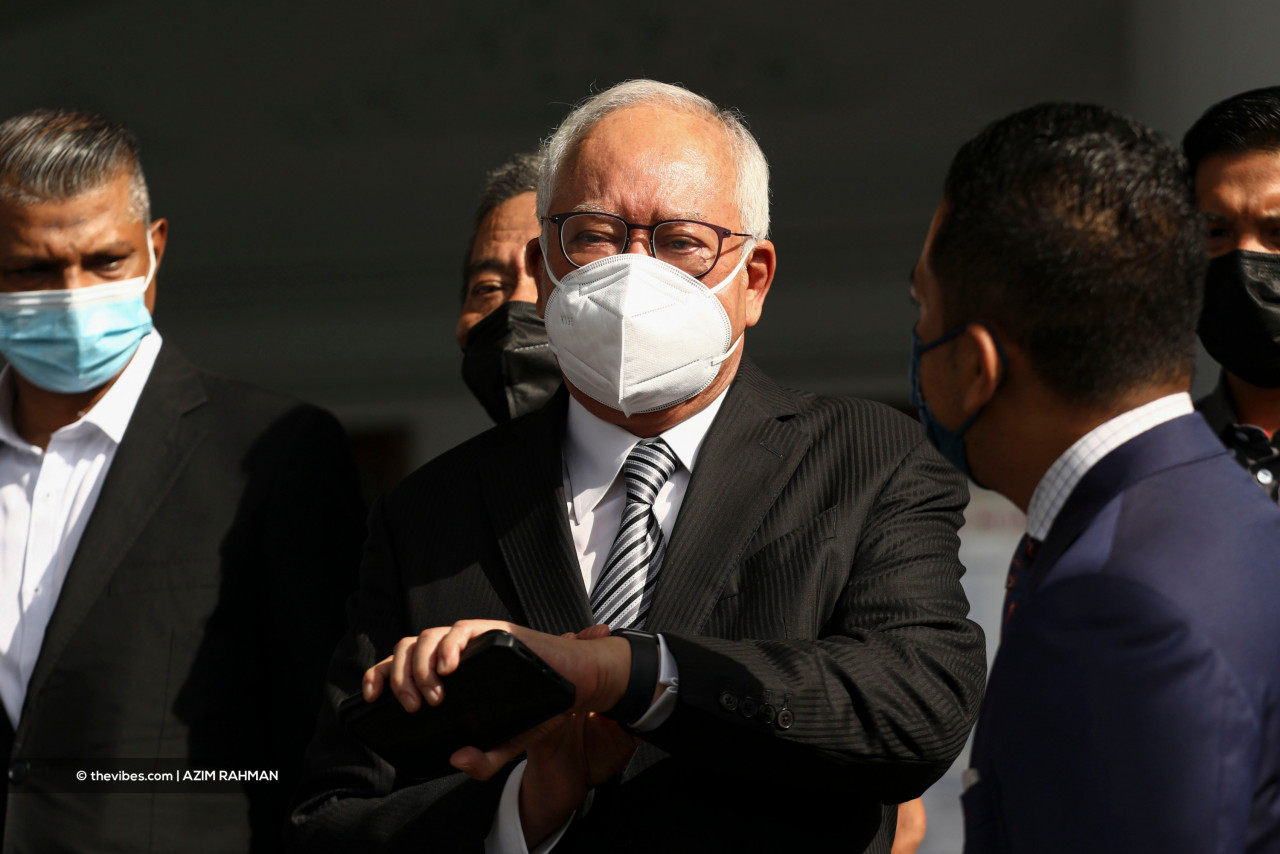
Improper application of the GST in 2015
The GST was introduced by the Barisan Nasional government under Datuk Seri Najib Razak’s leadership in 2015 at a rate of 6%, and was later terminated by Pakatan Harapan when it took power after the general election of 2018. The PH administration replaced it with the sales and services tax (SST).
However, Kamal stressed that the government then had erred in the manner the GST was adopted.
“Firstly, the quantum of 6% was too high back then. A better bet would be a 3% quantum, and raising it gradually as the economy recovers and the disposable income levels are higher,” he said.
He noted that the GST is not new, being first mooted in 1988 as a value-added tax (VAT), but there was a lack of political will to execute it then.
Kamal stressed that GST is needed now because it allows for a more efficient rate of tax collection as it is consumption-driven – while the current SST is only powered by taxing the services provided.
“The economy needs to be reset whether we like it or not. And yes, some of the proposed changes are structural and have to be radical if we are to head off the recessionary signs heading our way,” he said in an interview.
He said that the GST features a flat rate without tiers, where both the rich, middle-class, and low-income earners are collectively made to pay the same rates.
“The difference is if one consumes more, one pays more. I think (some) politicians hijacked the GST and blamed it as regressive. But I do not agree with some (of those) opinions,” he said, lauding the GST for being a direct form of taxation.
“Some 200 countries cannot be wrong in adopting the GST,” he added.
He noted for example that the United Kingdom and India have introduced high VAT rates of up to 20% and 18% respectively.
“But it can be revised to match the current economic conditions. It is an efficient form of taxation driven mostly by consumption,” he said.
Kamal said that the government needs funds to replenish the costs incurred in mitigating the effects of Covid-19, including in the purchase of vaccines.
At the same time, there is a need to intervene in the marketplace to cope with the weakening of the ringgit, the capital flight due to political instability and global inflation, he pointed out.
Before it was abolished, the GST was levied on most transactions in the production process, but was refunded to all parties in the chain of production other than the final stage, which are the consumers.
But the GST was also zero-rated in essential services such as controlled food items, water and energy, as well as for some education and healthcare-related services.
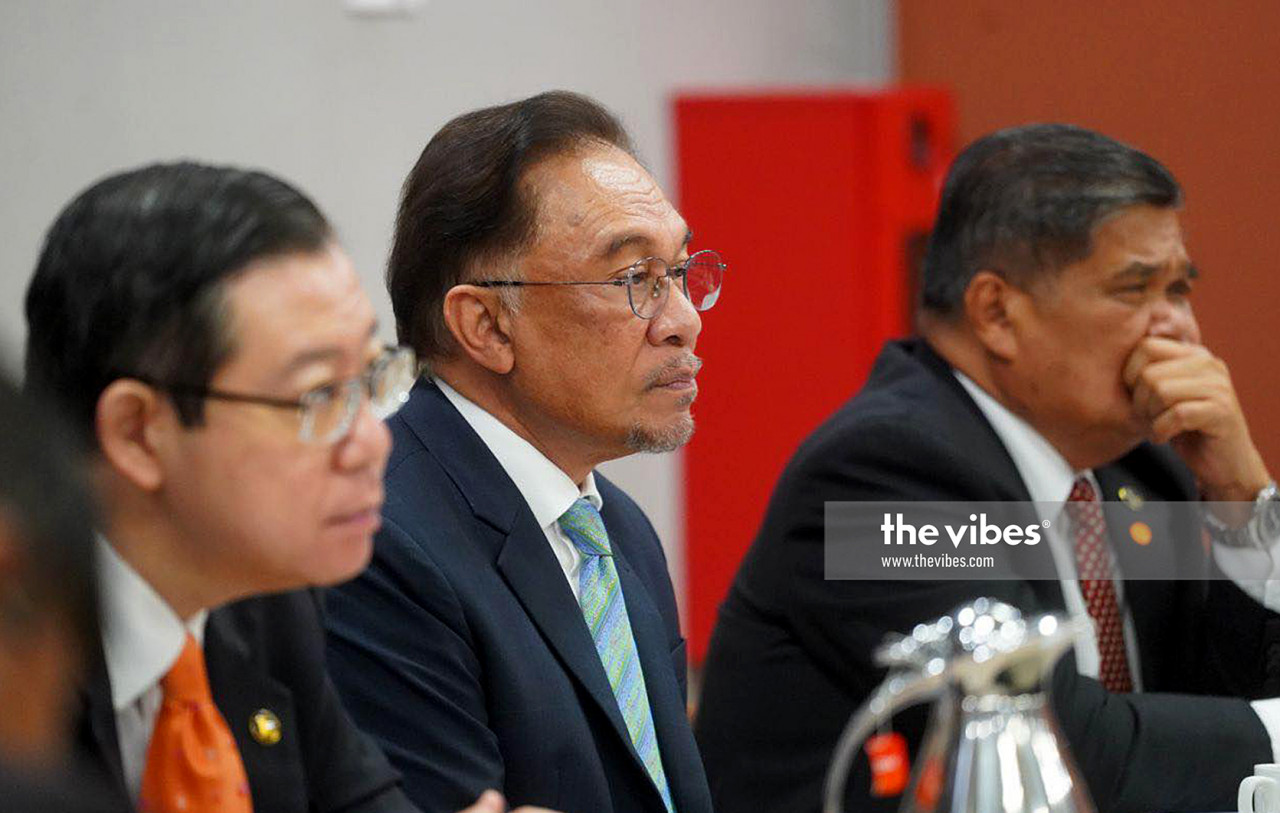
‘RM20 bil in revenue lost after GST stopped’
Prime Minister Datuk Seri Ismail Sabri recently said that the implementation and effects of the GST are being studied before a decision is made to revive it.
He had stressed in an interview with Nikkei Asia in Tokyo that no other nation besides Malaysia has reverted from the GST to SST.
The prime minister said the nation lost RM20 billion in annual revenue after the GST was abolished and replaced with the SST.
He added that efforts to increase awareness of the tax form among the public must first be intensified before it can be implemented.
Previously, the Finance Ministry said the government was still studying the suitability of implementing the GST, along with the usage of other taxation models.
A debate has since ensued with the PH presidential council rejecting the proposals to reintroduce the GST.
The council said the move would cause immense hardships for the people as it would lead to a drastic increase in the cost of goods.
It said this was compounded by supply-chain issues and stagnant wages.
The council added that it is illogical for the government to consider collecting additional taxes from the people without first proving that the nation’s governance has improved.
“There is no point in collecting more taxes if the people’s money is eventually wasted on corruption and cronyism,” it said, referencing Malaysia’s position as number 62 in the Transparency International World Corruption Index.
The Federation of Malaysian Manufacturers then welcomed the reintroduction of GST as it is a fairer and more transparent tax regime compared with the SST.
Its president Tan Sri Soh Thian Lai suggested that the implementation of the GST be done at a 4% rate while corporate tax be reduced to 20%.
Prominent banker Tan Sri Nazir Razak, who happens to be Najb’s younger brother, recently said the GST should be reinstated and the PH administration erred when it abolished the GST after its 2018 election victory. – The Vibes, June 7, 2022



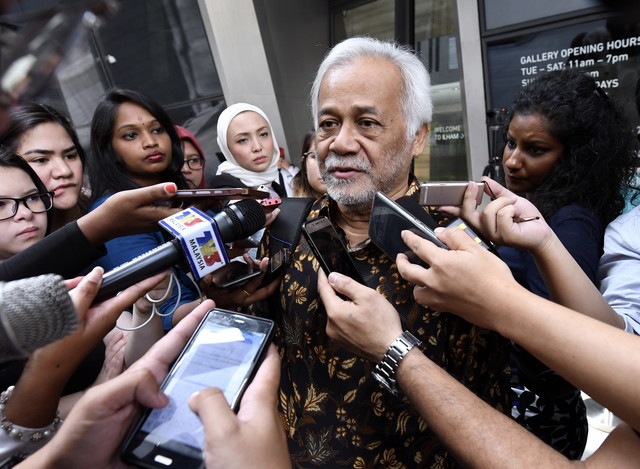

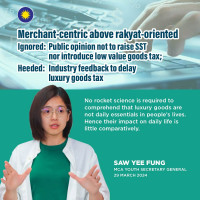

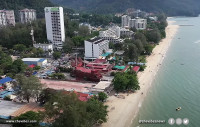
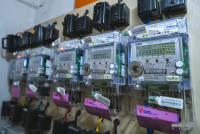
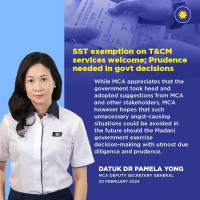


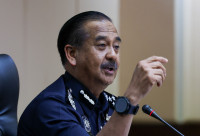

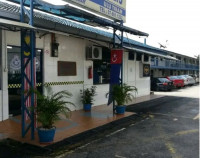
.jpg)

.jpg)



